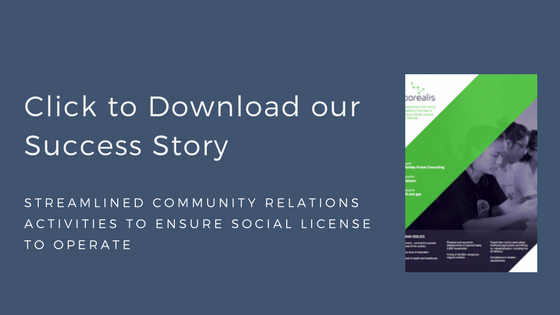I’ve always liked spring. As I’m not really a winter-sports-girl, the cold season is a long hibernation period for me. But this year, spring is even more special as I will finally be able to set up my self-sufficient project in my new house. I have started seedlings in February and since then I’ve been counting the days until I can plant them and play outside!
For that, spring is magic. It gives us the urge to begin something new and better. Everything is reborn. It’s the best season to let yourself be inspired. You can look around and dream about what you can achieve next. And that’s exaclty why we have collected some social trends that should color your next months.
Here are 4 CSR trends to notice this spring.
Corporate Social Responsibility: back to basics
Customers are speaking with their values as well as their wallets.
They still care about innovative features and good customer service, but they also care about what matters. Trust and transparency are at stake for every organization. In fact, the Nielsen annual Global Corporate Sustainability Report recently states that 66% of consumers will choose to spend more money on a product from a sustainable brand.
You can’t treat CSR like a public relations issue anymore. It’s more than that. You need to walk the talk and provide real examples of how you are offering benefits for society. Great sustainability reports are not enough. Thanks to the Internet, people now do researches and verify what they have been told. They ask for authenticity and real actions.
However, according to the Conference Board, three-quarters of Canadian consumers believe that “environmental claims were often just marketing ploys” and 65% said the term “green” has been used so often “that it did not have much meaning anymore.”
For instance, although Starbucks states on its website: “We’ve always believed that businesses can – and should – have a positive impact on the communities they serve,” they received Ethical Consumer’s worst rating for environmental reporting. Furthermore, according to the analysis, Starbucks “had a ‘rudimentary’ approach to stakeholder engagement, ‘poor’ auditing and reporting and a ‘poor’ approach to difficult issues.”
Nowadays, it’s essential to put all fine words into real effect.
Financial returns of doing good and more CSR at the CEO’s table
As Freya Williams, CEO of North America for Futerra says:
“Businesses with a purpose beyond profit tend to outperform the competition on — you guessed it — profit. Why? Because a purpose serves as a succinct statement of your corporate strategy; it answers the question, ‘Why does this business exist?’ Increasingly, employees, customers, consumers and stakeholders are drawn to companies with an answer to that question, one that aligns with their own personal purpose.”
More and more organizations are convinced that incorporating sustainability and social good into their businesses and brands will help them grow.
Investors are starting to think that putting their money in socially responsible companies can earn them superior returns. Indeed, BDC, a Canadian bank devoted exclusively to entrepreneurs, has recently said that, as investors, they are convinced that social business brings a lot of advantages: brand identity differentiation, powerful social media appeal and membership in a club whose members seek to do business with each other.
In fact, more companies are taking CSR and sustainability in most high-level positions. As a result, CSR managers can finally bring social initiatives to life without having to fight uphill battles every time they want to initiate some change.
Government initiatives to encourage corporate social responsibility
It was natural for government units to start embracing and encouraging CSR.
In Canada, an independent Ombudsperson has been announced for Responsible Enterprise. He will ensure that Canadian businesses operating in foreign countries do so in a manner that respects the human rights of local populations. At first his mandate will be limited to mining, oil and gas, and the garment industries, but the government plans to expand that within a year of the Ombudsperson taking the role.
We’re hoping other countries will follow a similar path.
Community is the new security – What do we mean by that
In the past years, safety has probably been one of the biggest success stories in the mining industry. We have seen a decrease in incidents indicating that improvements made in safety initiatives are delivering positive results.
Now that security has become more controlled, the challenge is creating a positive environment for local communities with a long-term vision. Mining organizations need to think adequate infrastructure, environmental benefits, social investments and programs to increase the skilled local workforce.
Corporate social responsibility helps to build trust, and trust is vital to implement a safe environment. Corporate security begins in the community. Without the consent of the communities, projects can be stopped just like they could before, because of safety and incidents.
Maintaining social license to operate is essential to reduce the risks of public criticism, social conflicts, and, in general, damage to a company’s reputation. It also improves the effectiveness of a company’s resources.
Nevertheless, the lack of a SLO is associated with social conflict and possible mine shutdowns due to community opposition to the project.
Engaging with communities is now the real challenge to continue operations as usual.
Are you ready to follow these trends and take your CSR strategy to the next level? Request a demo today. We’ll be happy to be your partner on the journey towards better social and environmental performance!






